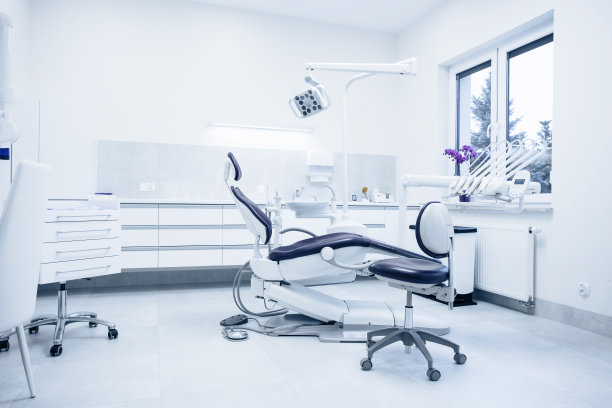Summary: Dental implantation is a highly effective solution for missing teeth, significantly improving oral function and aesthetics. However, the success of the procedure and post-operative recovery hinges on essential precautions. This article discusses four crucial aspects: pre-surgical consultation with a qualified dental professional, proper surgical techniques and choices, focused post-operative care, and lifestyle adjustments that support recovery. By adhering to these precautions, patients can optimize their implant experience, ensuring a healthier and more sustainable outcome.
1. Consult with Qualified Dental Professionals

Prior to undergoing dental implantation, it is paramount to consult with a qualified dental professional. This initial step lays the foundation for a successful procedure. A thorough examination, including X-rays and possibly a 3D scan, allows the dentist to assess the jawbone structure and prepare for any necessary preparations.
Building a rapport with your dental provider can also help alleviate anxiety associated with the procedure. Engage in open discussions about your dental history, any medical conditions, and your expectations. This transparency ensures the surgery is tailored to your specific needs, significantly enhancing the chances of success.
Another critical aspect of this consultation is the necessity of discussing potential risks and complications. Understanding these factors equips patients to make informed decisions and ensures that all questions are addressed before the surgery commences.
2. Adhere to Proper Surgical Techniques
The surgical aspect of dental implantation is crucial; improper techniques can lead to complications like peri-implantitis or implant failure. It is crucial that the procedure be performed in a sterile environment to mitigate the risk of infection. Deluxe surgical tools and quality materials must be used for both the implant and the abutment.
Furthermore, the dentist should have a comprehensive plan for the placement of the implants. Utilizing computer-guided surgery can enhance precision and effectiveness, ensuring that the implants are placed optimally within the jawbone.
Post-surgery, its essential to monitor recovery closely. If swelling or discomfort appears excessive, it’s important to reach out to your dental provider promptly. Keeping a close eye on the initial healing phase can significantly reduce long-term complications.
3. Focus on Post-Operative Care
Post-operative care plays a vital role in ensuring the success of dental implants. It begins immediately after the procedure, requiring a careful follow-up for the first few days. Pain management is typically necessary, and prescribed medications should be taken as directed.
Maintaining good oral hygiene is critical during the recovery phase. Patients should follow their dentists advice on how to clean around the surgical site without damaging the new implant. Gentle rinsing with saltwater can help keep the area clean without causing harm.
Additionally, attending follow-up appointments is critical for monitoring the healing process. These visits ensure that the implant is integrating with the bone correctly, assisting in identifying any issues early on. Consistent communication with your dentist post-surgery reinforces a supportive recovery journey.
4. Make Supportive Lifestyle Changes
After dental implantation, certain lifestyle changes can substantially impact healing and long-term success. For instance, avoiding smoking is crucial, as it can significantly hinder healing and reduce implant success rates. Smoking restricts blood flow, which is essential for implant stability.
Furthermore, maintaining a balanced diet filled with vitamins and minerals supports overall health and promotes healing. Foods rich in calcium, vitamin D, and protein help strengthen your bones and tissues, thus aiding recovery.
Lastly, engaging in stress-reducing activities can foster a better healing environment. Practices like yoga or meditation not only improve emotional health but can also lower inflammation and promote faster recovery post-surgery.
Summary:
In conclusion, successful dental implantation and optimal oral health depend on a combination of careful planning, proper surgical techniques, well-managed post-operative care, and supportive lifestyle changes. By implementing these essential precautions, patients enhance their chances of a successful recovery, resulting in improved oral functionality and quality of life.
This article is compiled by Vickong Dental and the content is for reference only.
Vickong Dental
Vickong Dental is a large medical group established in Hong Kong in 2008 by professors from well-known medical universities in Guangdong and Hong Kong, as well as medical doctors from key national '985' universities (including Master's supervisors and senior professors). The chain of branches brings together expert dentists with PhDs and Master's degrees from Hong Kong and Mainland China, committed to providing high-quality dental treatment.
"Vickong Dental Practices the University Motto of 'Healing and Serving Society,' with a Stable Operation for Sixteen Years. It Has Been honored with Hong Kong Enterprise Leaders's Choice,' and is a Global Trusted Implant Center for the Nobel Implant System. Recommended by Hong Kong Metro Broadcast and Guangdong Television, it Serves Customers from Over Thirty Countries and Regions, Gaining the Trust and Favor of Citizens from the Guangdong-Hong Kong-Macau Greater Bay Area and Surrounding Cities.

Thousands of customers' unanimous praise
The most recognized and highly recommended dental service by customers in the Guangdong-Hong Kong-Macau Greater Bay Area
We Ensure You Receive Detailed Care and Attention Here
Hong Kong standards, Shenzhen prices, Your Trusted English-speaking dentists

Vickong Dental Medical-Grade Instrument Disinfection Process
Vickong Dental Medical-Grade Instrument Disinfection Process

Vickong Dental Chain: A Warm and Comfortable Environment for Treatment






Appointment Hours

Q&A
Why choose Vickong Dental?
Vickong Dental practices the university motto 「Medicine to Benefit Society」, with each branch bringing together highly qualified dentists with doctoral and master’s degrees from Hong Kong and the Mainland, and has maintained seventeen years of steady operation。Recipient of 「2024 Hong Kong Enterprise Leaders Brand」, 「2025 Hong Kong Enterprise Leaders Brand」, a Nobel Biocare Global Trusted Implant Center, and a brand recommended by Metro Radio Hong Kong and Guangdong TV。
To date, we have served customers from more than thirty countries and regions,earning exceptionally high word-of-mouth recognition and trusted recommendations from residents across the Guangdong-Hong Kong-Macao Greater Bay Area and surrounding cities
We have eight major branches in Zhuhai、Shenzhen,and a consultation and service assurance center in Hong Kong,so you can book a free consultation at any time for any questions,which is very reassuring.
If I do not accept the quotation after the CT scan, will I be charged??
No! As long as the actual treatment has not started, you will not be charged any fees.
Will there be any additional charges during the treatment process?
No, there won’t be any additional charges. Before treatment begins, we will clearly explain the treatment plan and its corresponding fees. Only after the patient agrees and signs the consent form will we proceed with the dental service.
Can I pay in Hong Kong dollars?
Yes. Vickong Dental accepts payment in Hong Kong dollars. The amount will be converted based on the exchange rate of the day, and the applicable rate will be clearly communicated to you in advance.
Can I reschedule my appointment at any time?
Yes. Please contact us via **WeChat** or **WhatsApp** as early as possible, providing your original appointment time and details, along with your preferred new date and time slot for rescheduling.













